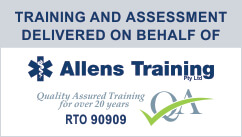Fear factor hinders people learning First Aid and using CPR to save Australians’ lives
- GEMMA JONES AND VANDA CARSON
- THE DAILY TELEGRAPH
- JANUARY 13, 2012 12:00AM
FEARS of legal action or catching a disease are preventing people from giving CPR in an emergency.
North Shore First Aid on Sydney’s North Shore is the first aid provider that will dismay any fears surrounding First Aid and CPR. Our classes held at Chatswood RSL in a fun, friendly and above all a relaxed atmosphere. You never know when you will be required to help someone in a first aid situation, why not learn the facts about First Aid. Book a course today with North Shore First Aid and save a life.
A survey of more than 1000 readers of The Daily Telegraph yesterday revealed showed 32 per cent were worried about being sued and 30 per cent were concerned about risks to their own health.
Lawyers yesterday moved to reassure good Samaritans who provide first aid that, unless they were drunk or on drugs at the time, they could not be sued.
Triple-0 operators instruct callers concerned about giving mouth-to-mouth to provide chest compressions only.
Slater and Gordon lawyer Steven Lewis said The Daily Telegraph’s campaign for CPR to be taught in all schools and included in the national curriculum was an “important and timely initiative”.
A US study cited in research by the Children’s Hospital at Westmead showed 50 per cent of children given CPR after a near-drowning incident survived with good neurological outcomes if they were given effective CPR within five minutes of immersion.
“In these modern times a major concern is that someone going to the assistance of another might be sued as a result of the help they give,” Mr Lewis said.
“Let’s be very clear, the law in NSW states very specifically that a good Samaritan cannot be sued while trying to help someone who is injured or at risk of being injured.
“These protections are spelt out in the Section 57 of the Civil Liability Act.
“There are, however, exceptions if the good Samaritan is drunk or under the influence of drugs.”
Research by the Children’s Hospital at Westmead showed the same health concerns trend identified in The Daily Telegraph survey.
More than 20 per cent of 348 people surveyed in 2008 said they would not perform CPR on a stranger for health reasons, with more than 10 per cent of people citing a fear of contaminated blood.
Studies had not found any reports of transmission of HIV or hepatitis C and B through CPR, emergency department doctor Fenton O’Leary said.
“The risk of disease transmission is very low,” Dr O’Leary said.
In circumstances where blood was coming from a patient’s mouth, Dr O’Leary said only chest compressions should be given.
He said the biggest concern was that about 80 per cent of people said they lacked knowledge about CPR and about 40 per cent said they feared “inflicting harm”.
Only 11 per cent said they knew the correct procedures for chest compressions.
Ambulance service spokeswoman Penelope Little, who last year assisted in successfully reviving a 29-year-old runner who had been ignored by passersby, said triple-0 operators were trained to offer alternatives in an emergency.
She said protocol was to instruct callers to provide both breathing and compression and if they expressed concern they would be told to go straight to pumping the person’s chest.
“Any attempt at CPR is better than nothing,” she said.
